Next month’s book club pick: Braiding Sweetgrass by Robin Wall Kimmerer • Upgrade to or renew an annual subscription to win my gorgeous desk essentials box • Wintering is back in the New York Times bestsellers! • And the Indie Bestsellers!
If you’re just catching up, here are Part 1 and Part 2 of this True Stories Book Club readalong.
Hello,
It’s interesting to note, this week of all the weeks, that Chrisiane Ritter was writing A Woman in the Polar Night as Hitler was on the rise. We said last week that she doesn’t mention it directly, but this week I could feel a breath of it in her writing. For all we know, she says, the rest of the world could be burning down but the pristine beauty of the Arctic was still there. There’s a sense that she felt that Spitsbergen was the world as it should be, untroubled by the chaos of humanity. I think a lot of people will be finding it appealing this week.
The chapters we read this week (9 - 13) are, to me, the apex of this book. So much happens. The small party is living in perpetual winter darkness, it is only getting colder, and the men are restless to go hunting. Food supplies dwindle. There is a sense that the supernatural is stirring, and the landscape is haunted by shadowy creatures. Karl finds a newspaper that reported on their expedition, and it makes special mention of Christiane, a woman ‘come from central Europe to find out about the fortrylleslse--the bewitchments and enchantments--of the polar night’.
Left alone for long periods of time, Christiane experiences a kind of unravelling - the rar, or polar madness, she’s been warned about. It is full of fear and compulsion (at one point she scrubs the entire cabin, causing a rare fight with Hermann), but also ecstatic. There’s a sense that Ritter does far more than observe the winter polar landscape; she seems to sink into it, to merge with its raw power. She receives the aurora borealis like a revelation: ‘This serene light has in it something that yearns toward the earth, something sheltering, consoling, promising, and yet utterly mute in its remoteness.’
The December full moon seems to engulf her. ‘It is as though we are dissolving in moonlight,’ she writes, ‘as though the moonlight were eating us up. It makes no difference when we got back into the hut under the snow after a moonlight trip. The light seems to follow us everywhere. One’s entire consciousness is penetrated by the brightness; it is as though we were being drawn into the moon itself.’
Even as the sun begins to return, Spitsbergen is growing colder, and the pack ice brings none of the promised game. This part of the book truly captures the agony and the ecstasy of this wild landscape.
So, tell me what you think! How do you read Christiane’s state of mind in the section? Do the men take enough care of her, inexperienced as she is? Are the physical challenges worth it for the sense of mysticism that emerges in her? And do you want to retreat to a hut in the Arctic right now?
Finally, I wanted to share some of Christiane’s watercolours of Spitsbergen - there’s a gallery below, but it’s surprisingly hard to find many full-size images online. This slide presentation by Martin Siefkes of Chemnitz University contains many of the images that are held in Svalbard Museum. I think they’re beautiful!
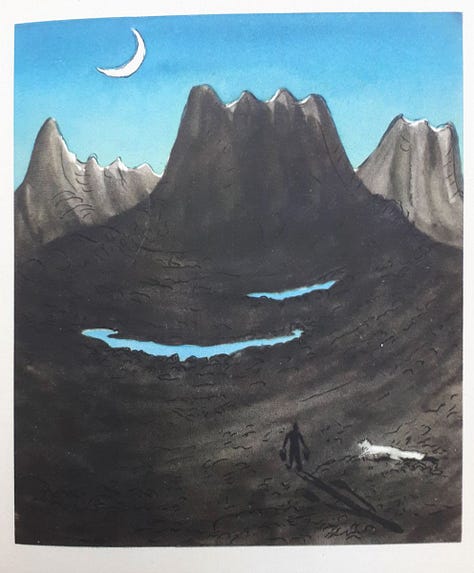
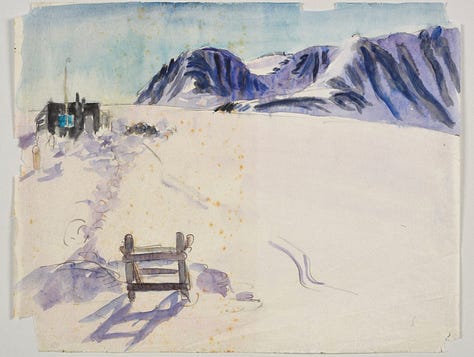

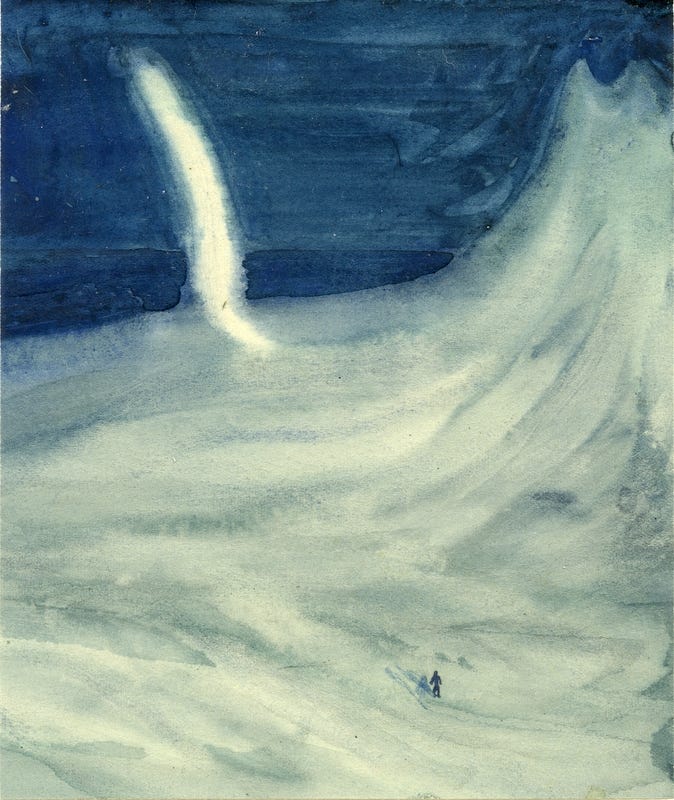
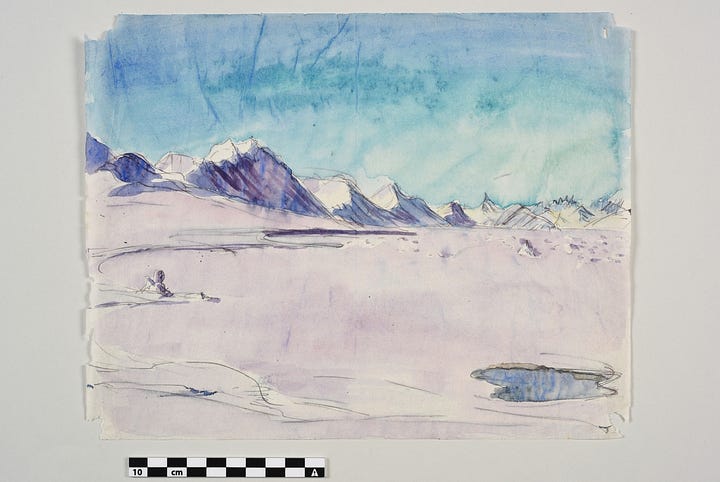
Coming up:
January 27th - 31st: Chapters 14, 15, 16, 17 and 18
Tuesday January 28th, 6pm UK time: Live final discussion with
and Anna Brones. Joining details are beyond the paywall.Don’t forget our prize draw! For a chance to win a copy of A Woman in the Polar Night, kindly supplied by Pushkin Press, just leave a comment on any of our Book Club posts. We’ll automatically enter you into the draw.
If you think a friend or loved one would enjoy The Clearing by Katherine May, gift subscriptions are available here | Website | Buy: Enchantment UK /US | Buy: Wintering UK / US | Buy: The Electricity of Every Living Thing UK / US
This newsletter contains affiliate links.


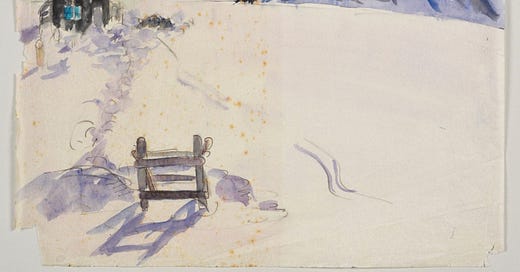


Obsessed with this book! I think that her unpretentious honesty and self confidence has created this masterpiece. Maybe instead of Virginia Woolf’s ‘room of one’s own’, some of us need an artic cabin of one’s own.
Does anyone else feel sad thinking about how different the arctic is now compared to when she went? Much as I'd love to run away I'd be too sad about the ice melting and worrying about if eider ducks and arctic foxes are going to survive!